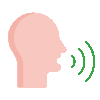
Our ABA Therapy Techniques

Early Start Denver Model (ESDM)

Early Intensive Behavioral Intervention (EIBI)

Natural Environment Teaching (NET)

Functional Communication Training (FCT)

Social Groups

Comprehensive ABA

Focused ABA

Discrete Trial Training (DTT)

"We were so happy with our experience with Chicago ABA. We began working with them when our son was almost 4, a few months after his autism diagnosis. It was such an amazing team to work with - everyone was professional, responsive, flexible, and worked so hard for our son to meet his goals, which he did beautifully. We worked together for almost 2 years before he left for kindergarten, and in that time period he met almost all of his goals. We went through several bumps in the road with behavioral difficulties, and the Chicago ABA team did an amazing job helping us problem solve, try new strategies and think of ways to translate those strategies at home. We couldn't recommend them more highly - anyone who works with Chicago ABA will be lucky to have the experience!"
"Chicago ABA Therapy is a boon for special needs kids and parents. They take a play-based, personalized approach and meet the kids where they are. They also go above and beyond - our ABA therapist took time to make sure we as parents understood every aspect of our child's experience, understood how to read his progress reports and generally made us feel a part of his therapy. My child loved all his therapists. Highly recommend the team!"

ABA Therapy Services We Offer

Comprehensive Autism Care

ABA Therapy

Autism Assessment & Diagnosis




